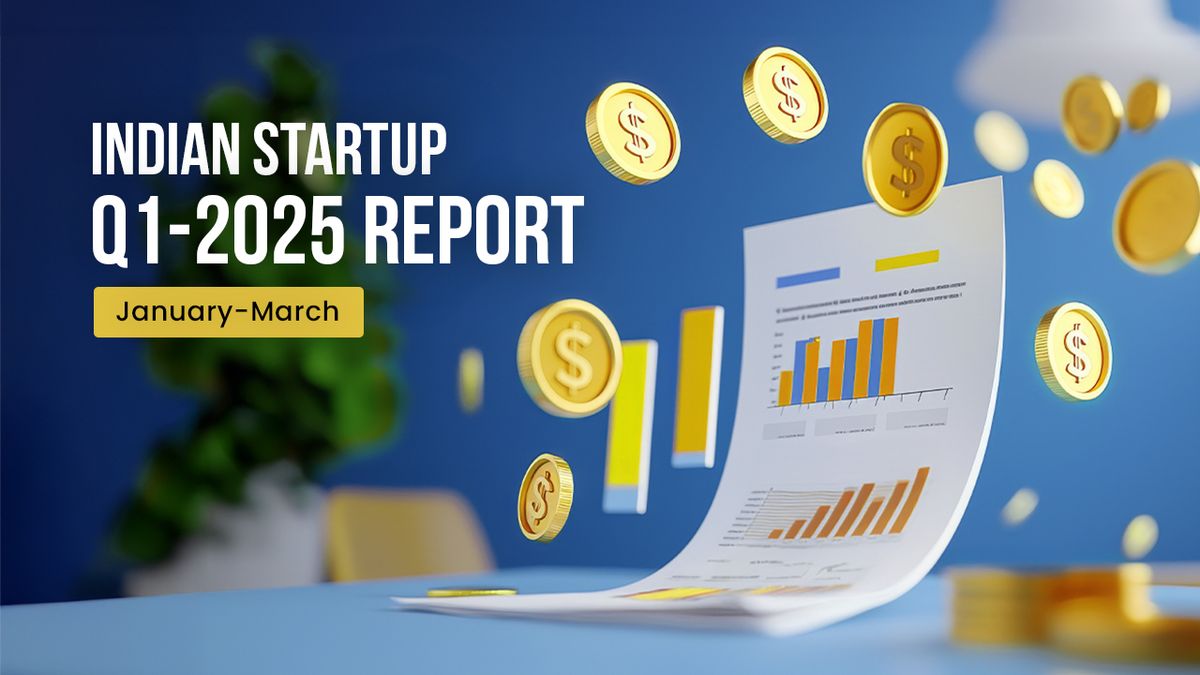Indian Startups Raise $3.7 Billion in Q1 2025
Indian startups raised $3.7 billion in the first quarter of 2025 through a combination of growth and early-stage investments. This quarter featured several significant fundraising efforts, with multiple transactions exceeding $250 million and consistent early-stage funding activity. The merger and acquisition scene remained vibrant, highlighted by Hindustan Unilever Limited’s acquisition of Minimalist for $350 million. The trend of layoffs continued to lessen, with only a handful of companies making cuts, resulting in a limited impact on employment overall.
Funding Breakdown for Indian Startups
Data from various sources indicates that during the first quarter of 2025, Indian startups garnered around $3.7 billion. This comprised 68 growth and late-stage investments amounting to $3.05 billion, coupled with 209 early-stage transactions worth $683 million. In addition, 42 funding deals remained undisclosed during this timeframe, although no company achieved unicorn status in Q1 2025.
Quarter-on-Quarter Trend
In comparison to the previous quarter (Q4 2024), the $3.7 billion raised in Q1 2025 reflects an increase of nearly 10%. Additionally, Q1 2025 ranks among the highest in funding compared to the same quarters over the past two years, notably Q1 2023 and Q1 2022, when the startup ecosystem witnessed $12 billion in funding during a funding boom.
Leading Growth-Stage Deals
Throughout Q1 2025 (January to March), the top 15 Indian startups amassed remarkable funding across various sectors including AI, fintech, healthtech, and enterprise solutions. Impetus Technologies topped the list with $350 million, followed by Innovaccer at $275 million and Zolve at $251 million. Significant funding also flowed to Darwinbox ($140 million), Infra.Market ($125 million), Leap Finance and Aragen (both at $100 million), Netradyne ($90 million), ToneTag ($78 million), and Udaan ($75 million). The comprehensive list is displayed below:
Leading Early-Stage Deals
In the early-stage funding arena, Atomicwork led the pack with $25 million, followed by Lucidity ($21 million), Harsoria ($20 million), and TrueFoundry at $19 million. Waterfield Advisors raised $18 million, while Spyne secured $16 million. Others like Cognida.ai, Abound, Geri Care, and Navadhan collectively raised between $12.8 million and $15 million.
Mergers and Acquisitions
The first quarter of 2025 experienced substantial merger and acquisition activity within the Indian startup ecosystem, culminating in 50 deals. A standout transaction involved D2C skincare brand Minimalist being acquired by Hindustan Unilever Limited for nearly $350 million. Wingify’s sale to Singapore-based PE firm Everstone for $200 million also marked a significant M&A event. Other notable acquisitions included Flipkart’s Super.money taking over BharatX, and fintech unicorn Chargebee acquiring AI-centric customer tracking platform Trainn.
City and Segment-Wise Deal Analysis
Bengaluru startups emerged as the leaders in funding activity during Q1 2025, securing 122 deals and raising over $1.4 billion, which accounted for 38% of the total capital. Following Bengaluru, Delhi-NCR startups closed 79 deals worth $884.53 million, representing 23.85% of the total funds raised. Startups based in Mumbai, Hyderabad, and Pune secured the next highest deal volumes with 54, 14, and 13 transactions respectively. Notably, Mumbai startups contributed 12.61% of total funding, gathering $467.68 million.
Fintech led the funding categories in Q1 2025, with 41 startups drawing over $905.37 million. Healthtech, e-commerce, and AI sectors also performed well, achieving 38 deals ($496 million), 35 deals ($308.66 million), and 24 deals ($475 million) respectively. Furthermore, sectors like SaaS, foodtech, proptech, and electric vehicles also secured investments this quarter.
Series-Wise Deal Overview
In Q1 2025, seed-stage deals dominated in volume, recording 98 transactions that raised $181.33 million. This was followed by Series A, which had 57 deals securing $401.7 million. In terms of total funding, Series D led with $748.6 million amassed from 9 deals, accounting for 20.18% of the overall funding, while Series B brought in $682.34 million from 18 transactions, contributing 18.4% of the capital raised.
Layoffs, Shutdowns, and Departures
In terms of layoffs, there was a modest decline with only three startups implementing job cuts affecting around 350 employees. Ola Electric, now a publicly listed company, also conducted layoffs affecting 1,000 employees. Compared to 1,200 layoffs in Q4 2024, the overall numbers remained stable. The year 2024 saw approximately 4,700 employees face layoffs, a significant drop from 24,000 in 2023 and 20,000 in 2022. During Q1 2025, four startups closed down, including ANS Commerce, which was acquired by Flipkart, and others such as Deep Rooted, O’Be Cocktails, and Thrive.
Additionally, the startup ecosystem faced notable exits of high-level executives in Q1. Reports show that 38 top executives, encompassing CEOs, CBOs, CFOs, co-founders, managing directors, and presidents, resigned during this period, contrasted by 102 key hires.
Emerging Trends
Despite the ongoing funding winter, early-stage investments have remained robust, with a total of 209 deals generating $683 million, suggesting a sustained interest in new ventures, particularly within SaaS, AI, and fintech sectors. The merger and acquisition landscape displayed strong momentum with 50 recorded deals in Q1 2025, including high-profile transactions such as HUL’s acquisition of Minimalist and Wingify’s sale to Everstone. Other significant trades involved PayU acquiring Mindgate Solutions, Jumbotail taking over Solv, and the Amazon-Axio transaction. This points towards an increasing tendency for market consolidation and strategic exits within the startup framework.
The absence of new unicorns in Q1 2025 signifies a shift from previous years characterized by frequent unicorn milestones, reflecting a more prudent valuation outlook among investors. Layoffs decreased notably with only a few startups announcing job cuts, indicating that closures are diminishing and firms are devising strategies to remain operational. The executive transitions hint at possible strategic adjustments as startups prepare for upcoming funding rounds, shifts, or public offerings.






